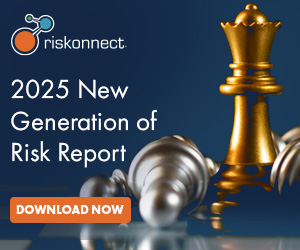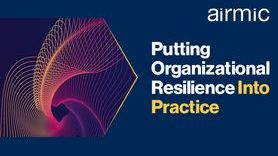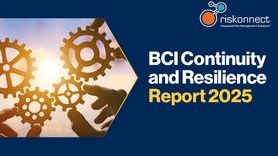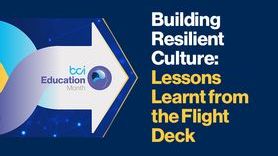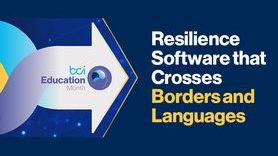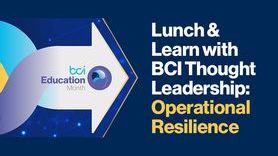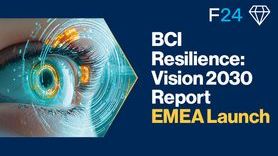BCI launches Continuity & Resilience Report 2022
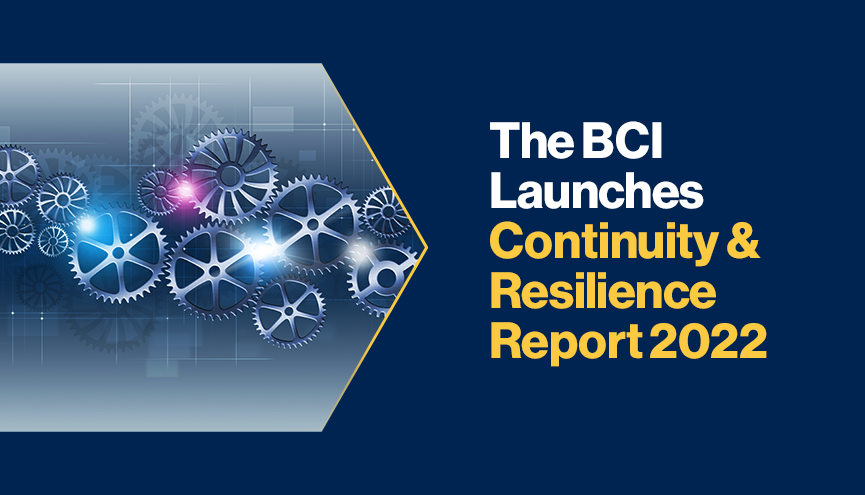
The BCI is proud to launch the 2022 edition of its Continuity & Resilience Report, sponsored by Riskonnect. This report looks at how business continuity (BC) & resilience are perceived within organizations across different industry sectors, while also examining what challenges these disciplines are facing amid the rise of new working environments.
The strategic position
Business Continuity is still being viewed as occupying more of a strategic position in organizations than before the pandemic, despite the amount of people rating it as such slightly dipping from last year. The pandemic showcased to management how well-positioned BC teams were to understand how to increase the resilience of organizations by building relationships between departments, offering guidance about how new business strategies will work from a resilience perspective and how effective the department is at helping the organization to overcome shocks. However, as some organizations start to bring in teams dedicated to organizational or operational resilience, there are some instances where the role of a BC manager has become more of an operational role again.
Despite this, respondents noted that an increased awareness of resilience processes and procedures is becoming the norm and, in some cases, this has provided a larger mandate for resilience and BC to become more of a strategic asset.
Resilience responsibilities at board level
In another reversal to pre-pandemic figures, 37.3% of respondents stated that a board-level role responsible for promoting and co-ordinating resilience efforts had been created and occupied in their organization, compared with 55.3% in 2021 and 31.4% in 2020. However, this can partly be attributed to the development of regulations and dedicating other roles on the board to ensure that the organization embeds a resilient culture.
For example, operational resilience is now either regulated or becoming regulated in many jurisdictions and these regulations ensure that related matters are typically reported to the Chief Operations Officer. Silos are also being broken down elsewhere, with the report finding that direct lines to the board are being shortened, sometimes through a ‘Head of Resilience’, to a defined board member (CEO, COO or CRO).
New ways of working
Following the development of new ways of working, partly stimulated by the pandemic, around 96.7% of organizations are reporting that ‘at least some staff’ now expect the flexibility to work from home for some of the time. However, while remote working is likely to remain in some form, resilience in remote offices is lacking. While 37.3% of organizations introduced resiliency measures during the pandemic for remote workers, a third do not have these plans in place and a further 12.7% had no plans to introduce them.
For those organizations who introduced measures during the pandemic to increase resiliency and agile working, these included installing uninterruptable power sources in home offices, but also having smaller hubs around the country where workers can work in an office environment if needed.
Other findings:
- In some instances, soft skills are more likely to be considered ahead of academic qualifications in the interview process for a BC and resilience role
- The business impact analysis (BIA) is still seen as one of the most critical instruments in the arsenal of a BC practitioner
- When looking at changes in the sector over the next five years, respondents felt the most likely change was increased senior management attention to business continuity and resilience, with 88.3% believing this would be of ‘much more’ or ‘more’ importance.
“When we published the first Future of Business Continuity and Resilience report at the height of the pandemic in 2020, practitioners were enjoying a new level of appreciation in organizations. They were seeing additional investment in tools and staff, were becoming more involved in the strategic side of business and were becoming trusted partners to the board on questions relating to the overall resilience of the organization. This report shows this attention has continued to remain in many organizations, which, coupled with the increased regulatory attention on operational resilience, means resilience is now an unavoidable topic for boardroom agendas. As a result of these changes, practitioners are now finding they have to be communicators and collaborators, as well as becoming more agile and adaptive in their approach – in addition to remaining experts in the more ‘traditional’ aspects of BC. Indeed, most practitioners believe that the role of the BIA is now more important than ever - it is the spine of a resilient organization,” said Rachael Elliott, Head of Thought Leadership, The BCI.
“Riskonnect is very pleased to sponsor this year’s Continuity & Resilience Report. The 2022 report introduces interesting insights and conclusions regarding the state of the business continuity discipline, as well as where resilience is headed as we exit the response to the COVID-19 pandemic. The conclusions summarised in the report may well influence how you position your programme in 2023 and beyond,” said Brian Zawada FBCI, Vice President of Strategy and Innovation, Riskonnect.
The report is available to download in the BCI Knowledge Library, follow the link below:


